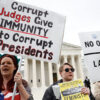Last December, the Ohio State treasurer, Josh Mandel, launched OhioCheckbook.com, a website specifically dedicated to showing taxpayers exactly where their dollars are going.
However the journey to this new endeavor wasn’t as simple.
“I identified a problem in our state government that everyday taxpayers couldn’t see how money was being spent,” Mandel said at a Heritage Foundation event last month.
In May 2013, Mandel approached state legislators asking them to introduce a bill that would compel Ohio’s treasury to take every single penny of the state’s expenditures and allow it to become public record via the internet.
“You can see everything from two bucks for a pack of pencils to millions of dollars for road contracts and everything in between,” Mandel said.
After much debate, the bill was the last to be passed through the State House of Representative in June of 2014.
But right before legislators went to recess, the bill immediately died in the Senate.
Once Mandel and his team realized there was going to be more opposition than originally assumed, the office of the Ohio treasury began to develop OhioCheckbook.com, even as the state Senate considered the transparency bill.
The duration of launching the project lasted over a year.
Once they were close to finishing, Mandel and his team hired a private sector company to launch the website and simultaneously learn some lessons from the ObamaCare rollout.
It was originally suggested to Mandel that the launch should be in September or October of 2014 to assist in his re-election efforts.
However, Mandel made the decision to wait until after re-election and launch the website in December to avoid accusations that the launch was strategically done for political reasons.
Mandel stated, “Politics has nothing to do with it. We’re doing this because we think it’s a great service to taxpayers throughout the states.”
Mandel said that the idea of allowing the state of Ohio’s spending to become transparent was inspired from the principles of James Madison and the importance he stressed on individuals having access to information in order to hold public officials accountable for their actions.
“I believe very strongly in the concept that when government is big, the people are small, but conversely, when we can make a government small, we can make people big. My ultimate goal here is to set off a national race for transparency.”





























